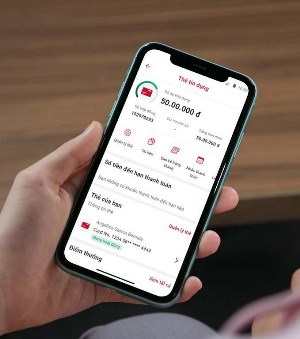How to spend wisely
Reasonable spending is a problem that almost everyone struggles to find the answer to. However, there isn’t just one answer to this problem – there are many ways to spend wisely.
As a fresh graduate and an intern just starting her career, Mai has to think about proper personal financial planning in order to achieve her short- term and long-term goals while keeping the joy in her life and avoiding restrictions. There are two ways she can do this: through income growth and reasonable spending. Mai believes that in addition to her current income, she just needs to cut down on her spending by eating less and not going out. However, that wouldn’t be fun at all. If Mai cuts everything out, it will only lead to her becoming stressed as she always feels pressured to save money without doing what she enjoys. This is not the way to get rich, but a method of self-limitation people use when they don’t know how to spend wisely. Instead, Mai needs to develop “happy spending” habits.
Here are some habits that smart consumers need to know.

FIVE-QUESTION RULE
For this rule, you just need to ask yourself the following five questions before making any shopping decisions:
Do you want it or do you need it?
What you want may be just instant gratification, but what you need is what you lack to serve a key purpose in your life. When you are able to separate them, you can avoid spending money on what you simply want. For example, Mai wants to buy a pretty cup at the store, but in fact, she went there to buy a vacuum flask that she can use in multiple situations, including at work. So, Mai should buy the vacuum flask, not the cup.
Is it really necessary?
Next, you must also distinguish whether it is your own will, or if it is truly a need. For example, if Mai’s company already has a hot and cold water dispenser, she doesn’t really need to bring a vacuum flask to the office at all, so she shouldn’t buy one. But if her company doesn’t have any water dispensers, it is a necessary purchase that will provide her with a benefit.
Is there a less expensive option available?
If Mai’s company doesn’t have any water dispensers, she can examine other options instead of buying a vacuum flask: for example, buying bottled water every day (this option is both expensive and harmful to the environment), or drinking from a colleague’s vacuum flask (this is quite sensitive so most people may not agree; if they agree, Mai can’t do it for a whole week or a whole month). Once she has made the comparison, she needs to choose the best option, which in this case is to buy a personal vacuum flask.
Have I chosen the best price?
With the emergence of a series of e-commerce platforms such as Shopee, Lazada, and Tiki, consumers have a variety of options with many different prices, usually lower than shopping at the store. Therefore, make sure you check prices from all sources so you can make a decision that is both right for you and at a reasonable price.
How long will it take me to get the item?
This is a key question for those who have just started working or have insufficient financial resources. If you are working for a salary, you can compare the value of the item you intend to buy from many different sources. For example, Mai’s income is VND 7 million/month, which means she has a daily salary of about VND 250,000 and the vacuum flask costs VND 300,000 – more than what she earns in a day. If she can manage, the vacuum flask is almost certainly something she needs to buy. So, she can both have the vacuum flask she wants and be financially happy as she knows that it is worth it.
THE 1% RULE
The 1% rule is a practical tip from Glen James, Australia’s leading financial speaker. This rule is easy to understand: “If you want to spend on something - a non-essential - that costs or exceeds 1% of your gross annual income, you must wait one day before buying it. During that time, ask yourself: “Do I really need this? Can I afford it? Will I use it? Will I regret buying it?”.
Let’s say Tuan’s gross annual salary is VND 300 million (VND 25 million per month) and he wants to buy a new pair of Adidas sports shoes that cost more than VND 3 million VND (1% of VND 300 million). Tuan would need to wait a day before making an official decision. During that time, he should seriously consider the shoes he currently has and ask himself if they are too old or not comfortable enough and he might decide, for example, that VND 3 million is too much, and that he could spend the amount on something more valuable. If, after a good night’s rest, it still seems like a good idea, then Tuan may go ahead and make the purchase.
In fact, we can apply this rule in a more flexible manner. For super high earners, 1% of their annual pay may not be an appropriate and could be increased. Or you could change it to 0.5% if your income level is just average. Whatever the percentage is, it should make sense based on your financial situation, needs, goals, and priorities.
With the two simple and easy-to-follow principles above, you will have a temporary pause to think and consider carefully before making a final decision without feeling regret later. As a result, you can achieve your long-term goal – financial well-being – as you will not only spend more wisely, but also find long-term mental and physical benefits if you keep on track to true prosperity.